Keeping our teens properly hydrated is an important factor in their overall health and well-being.
I’d be willing to bet most of us underestimate how much proper hydration affects us and how many of us really aren’t drinking enough…teens included.
I’ve been posting a lot lately about all the ways our tween’s attitude can be affected (ours too).
This post digs deeper into the how’s and why’s of hydration.
I know when I don’t drink enough water I don’t feel well.
I’m crabbier, more tired and sometimes my muscles hurt.
It’s no different for tweens and teens.
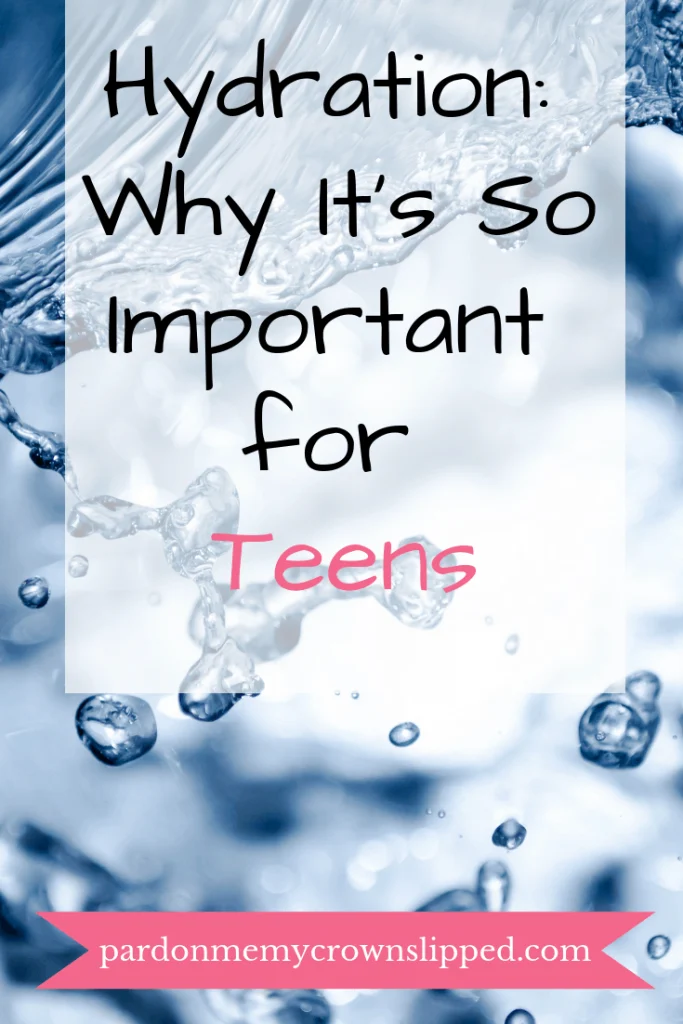
This post contains affiliate links. I will earn a commission at no additional charge to you if you make a purchase using my links. Click here to see my full disclosure policy.
Why is it so important to drink enough water?
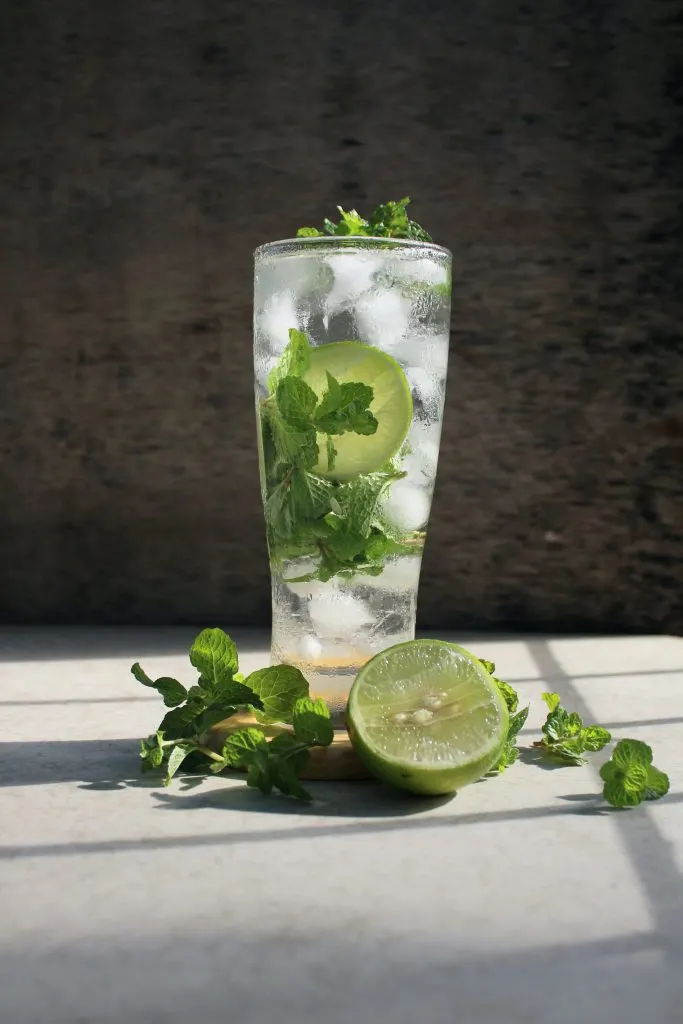
Drinking fluids, water mostly, is vital to every part of our body.
Our cells scream for it, need it to make the most basic functions happen.
When it doesn’t have enough, simply put, things don’t work right.
When all systems are operating at their best we feel our best.
And that includes our brains.
More hydration = better attitude.
Many people focus on hydrating during hot weather forgetting that getting enough water is important all year round.
More benefits of getting proper hydration
- Muscles and joints work better
- Body temperature is regulated
- Helps transport nutrients and flush toxins
- Clear and supple skin
- Healthy hair
- Better sleep, less fatigue
Considering all the demands being put on teens these days from academics, sports, and learning to navigate all the twists and turns that their growing bodies, minds, and lives are taking, making sure they drink enough water really does affect so much.
How much water should a teen drink?
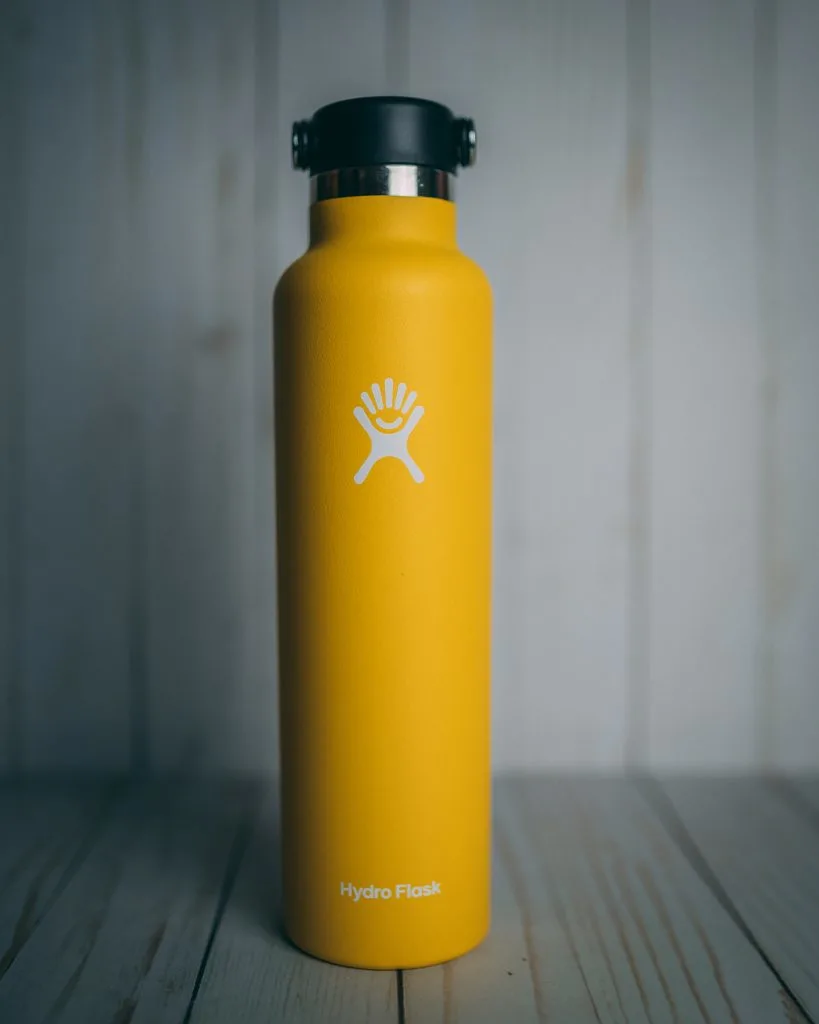
How much water you drink per day depends on your body weight.
Here’s how to calculate if you drink enough water.
Bodyweight divided in half = number of ounces.
Example: 100 pounds = 50 ounces of water per day.
Any ounces of liquid containing caffeine takes away from that number.
So if all you have is caffeinated drinks you are actually in the negative.
To make sure everyone in our house drinks enough water, we have the water filter pictured below in our refrigerator.
This water filter is the same one in a pitcher style.
Although the bigger one doesn’t take up too much room.
I’m still refilling it constantly. Always ready and always cold.
I keep it full and use refillable water bottles to take when we go out.
Any fluids besides water usually have sugar, so water is a much better choice.
The kids have always been water drinkers so it’s not “boring” to them like it is to some people.
But if it’s an issue getting them to drink enough water, adding a squeeze of lemon, lime or infused water is a nice treat.
But let’s be realistic and know that kids can be a pain, lol and variety is appreciated, so…
Other ways besides water to get more fluids

Fruits and Vegetables
Getting your nutrition is best naturally rather than in juice form.
Fruit is filled with water, some more than others. Strawberries are the most with 92%.
Melons such as watermelon, cantaloupe, and honeydew are more than 90% water.
Others like apricots, blueberries, oranges, peaches, pineapples, plums, and raspberries contain over eighty percent water.
For those picky kids, try making smoothies.
For veggies, cucumbers, celery, and iceberg lettuce the list for high water content.
Not all kids will appreciate green smoothies but give it a try but sneaking a little in with the fruits works too.
Juice
Fruit and vegetable juices have their place but watch the sugar and the quantities. Extra sugar doesn’t help with that attitude.
While these aren’t juice, many kids would think sports drinks and vitamin waters fall into the same category.
But it’s way too much sugar.
Labels are misleading, we often look at the sugar quantity and don’t realize that’s per serving, not per bottle which is often 2 servings, so double it!
In fact, most of our sports teams tell the kids not to bring them.
Often with more sugar than soda and definitely made with dyes.
If all else fails, at least dilute them with water.
Even vitamin waters often contain high amounts of sugar and other substances too.
Milk
Cow’s milk and its other alternatives provide additional liquids. The lower the fat content the higher the water content.
So many alternatives depending on the needs of your kid. Some kids need that high-fat content, like coconut milk that has 40 of its 45 calories per serving, coming from fat. Other kids have allergies or just don’t like milk.
Decaffeinated teas
Having tea before bed gets in a bit more liquids and can be a great slow-down addition to bedtime routines.
What happens if a teenager doesn’t drink enough water?
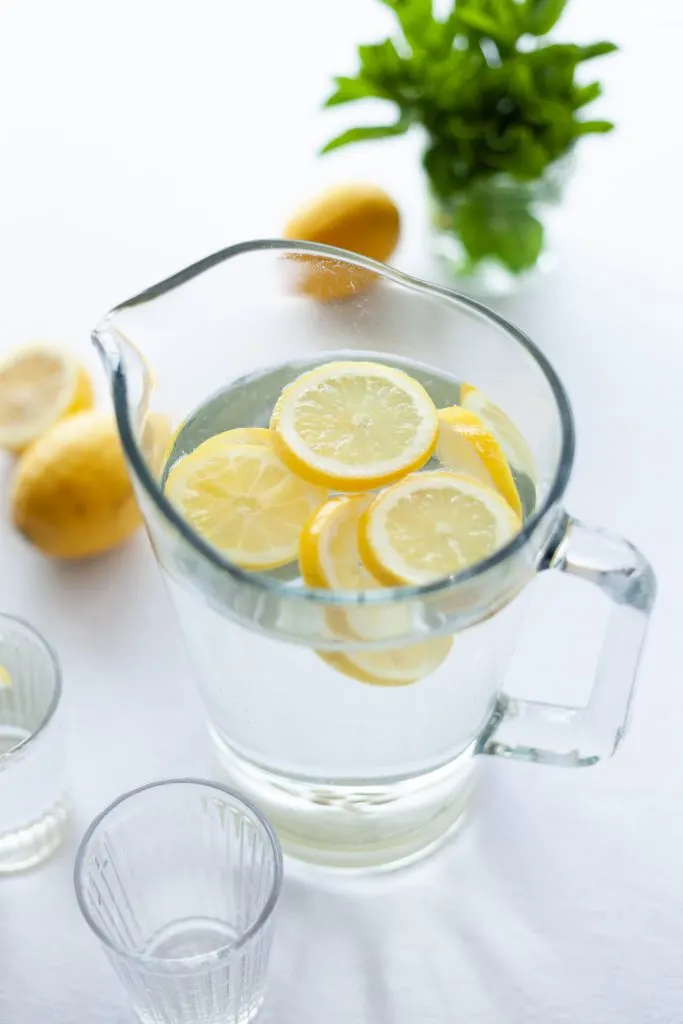
Mild dehydration can cause health issues such as headaches, irritability, poor physical performance, and difficulty learning.
Left untreated, dehydration increases the risk of other heat-related illnesses, including heat cramps, heat exhaustion, and heatstroke.
According to the Harvard School of Public Health, more than half of all children and adolescents in the U.S. are not getting enough hydration—probably because they’re not drinking enough water.
What are the signs of dehydration in a teenager?
Encourage your child to pay attention to early signs and symptoms of dehydration, including:
- Dizziness.
- Headache.
- Dark urine (may have a strong odor)
- Inability to urinate.
- Dry mouth and nose.
- Weakness.
- Nausea and vomiting.
- Skin that does not flatten when pinched and released
Risk factors for dehydration
Your child might be vulnerable to dehydration and other heat-related illnesses in a hot or humid environment if he or she:
- Wears clothing or protective gear that contributes to excessive heat retention
- Rarely exercises
- Is overweight or obese
- Is sick or had a recent illness, especially involving diarrhea, vomiting or a fever
- Is taking certain supplements or medications, such as cold medicine
- Has a chronic condition, such as diabetes
- Isn’t well-rested
If dehydration is detected early, fluids and rest might be all that’s needed. If your child seems confused or loses consciousness, seek emergency care.
Tips to make sure you drink enough water
- Drink often
- Make drinking a glass of water part of your morning and evening routine
- Carry a reusable bottle
- Use a fun tracker on paper or an app
- Set a goal to stay motivated
- Use variety to keep it more interesting
Keep calm and drink enough water.
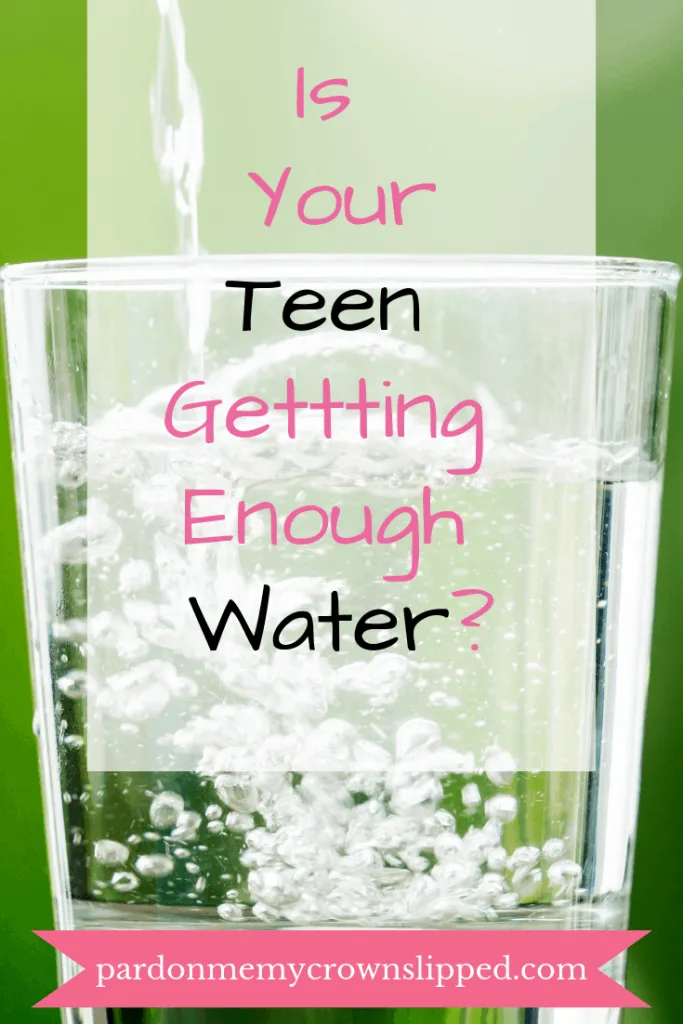

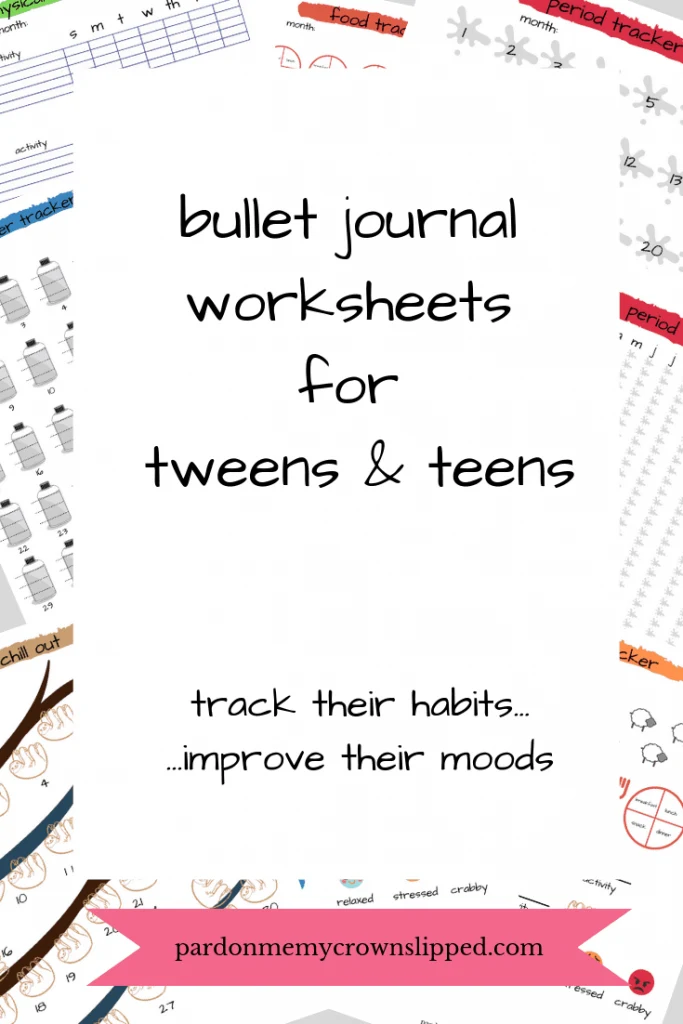
Just4Foodies
Wednesday 20th of November 2019
Thanks for sharing your tips, Laurie! Drinking a lot of water is so important.
Laurie O'Rourke
Thursday 21st of November 2019
Hi
Glad you enjoyed it. Yes, drinking plenty of water really helps so many systems. Thanks for commenting.
polo jafri
Sunday 7th of April 2019
Hydration is something we parents do not consider much. But, the way you describes hydration needs for teen and important of hydration worked as a eye opener for us.
Laurie O'Rourke
Monday 8th of April 2019
Hi Polo, Thanks, so glad I could help put hydration on your radar. :)
Vlad
Wednesday 3rd of April 2019
Good article, Laurie. I always struggle explaining my preteen son the importance of staying hydrated :( I'd like to argue one of your points in the article, though, and that's - the milk. Now, I know that milk has strong tradition in our minds, as a healthy thing to consume, but there are some harsh facts about it. After age 8, 65% of the people on Earth are lactose intolerant! Besides that, there's dairy allergy (which is not lactose intolerance!) which is one of the most commonly reported food allergies, just below peanut allergies. Milk can cause bloating, constipation and acid reflux and has been clinically connected with tons of other problems - sinus problems, migraines, increased eczema, even and joint pain. It's doing a body whether you're lactose tolerant or not. No, I'm not a milk hater, but, I'd just make a little reserve here - milk is not a substitution to water.
Laurie O'Rourke
Wednesday 3rd of April 2019
Hi Vlad, You're right! I totally agree with your feelings about milk. There are a lot of people who can't or don't drink milk. My daughter is one of them. While water is best for hydration, I simply included it as an additional source of liquids since it is a part of some people's overall diet. There are other milk sources besides dairy as well such as rice, coconut, almond, and soy. Although, those sometimes come with their own list of problems as well. Thanks for commenting.
Mark Anders
Tuesday 19th of March 2019
Hi Laurie, Thanks for the wonderful post. Am a surfer my self and I can just say what you have mentioned above is really true. This is exact formula we guys follow. Keep up the good work. Thanks again.
Laurie O'Rourke
Tuesday 19th of March 2019
Hey Mark, Thank you. No surfing where I live but it sounds like fun. Stay hydrated. Thanks for coming by.